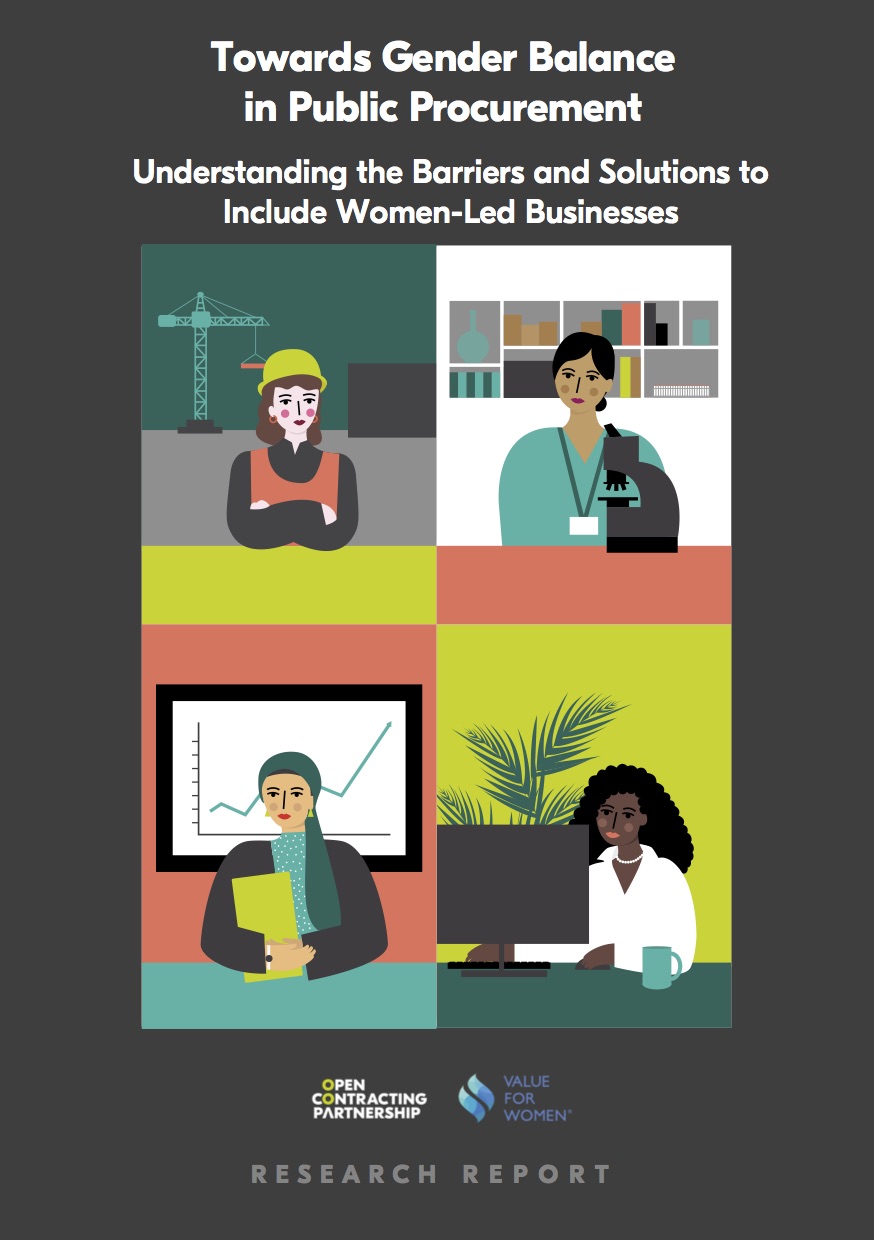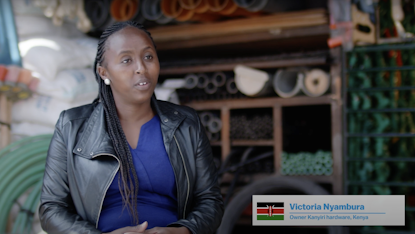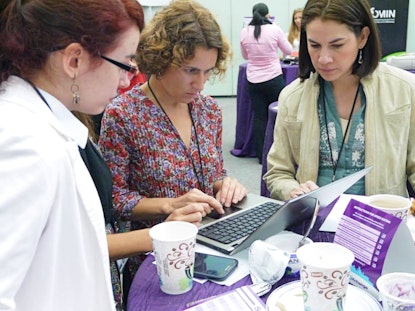Empowering communities and enabling inclusive growth:
Our focus on Gender
One in three small and medium enterprises are owned by women. Why aren’t they getting their fair share of government contracts?
Women are excelling in business. According to the World Bank, women-owned small and medium enterprises (SMEs) contribute 20% to the global gross domestic product. Despite the growth of women’s entrepreneurship, the number of businesses getting government contracts is much lower. For example, women-owned companies get only 5% of federal contracts in the US and 17% in Ukraine. When an intersectional lens is applied, factors such as race, disability, and geography further limit access to public procurement by women-led businesses.
This just isn’t good enough. Women’s participation in public procurement as users, planners, and suppliers is critical for the creation and monitoring of effective public services. Boosting women’s businesses can create jobs, and inject the market with new ideas and competition.
Lack of access to information, complex procedures and bias create barriers for women entrepreneurs, as well as under-represented groups.
As part of a gender-responsive procurement strategy, governments must deliver a feminist and inclusive public procurement cycle. This should include:
- Including the perspectives and needs of women and girls in the planning, award, and management of public contracts.
- Reaching out and communicating with the business community includes a diversity of women-led businesses.
- Collecting and monitoring data about the rates of participation of women-led businesses in public procurement to monitor progress and identify gaps and barriers.
- Identifying and removing barriers to women-led businesses access to the public procurement market by ensuring transparency, simplified procedures, access to credit, prompt payment, among other needed reforms.
Resources
Empowering women through public procurement and enabling inclusive growth
Qualitative and quantitative frameworks for assessing the inclusiveness of public procurement systems.
Strategies for government and the business ecosystem from over 30 different practitioners providing an on-the-ground perspective.
This 2-year project with the Africa Freedom of Information Centre (Uganda) and the Institute for Social Accountability (Kenya) explored the effectiveness of gender responsive procurement policies in Ethiopia, Kenya, Uganda, Rwanda and Tanzania. The project is supported by the International Development Research Council (Canada), the Gates Foundation and the Hewlett Foundation.
This brief was produced by UN Women, Africa Development Bank Group, AFAWA, We-FI to highlight how gender-responsive public procurement through the inclusion of women-owned enterprises can contribute to an increase in economic growth, greater gender equality, and effective women’s economic empowerment.
Projects and partners
In 2021, we launched a new project with the Africa Freedom of Information Centre (Uganda) and the Institute for Social Accountability (Kenya) to explore the effectiveness of gender responsive procurement policies in Ethiopia, Kenya, Uganda, Rwanda and Tanzania over the course of two years. The project is supported by the International Development Research Council (Canada), the Gates Foundation and the Hewlett Foundation.
We are also actively supporting partners in Colombia, Dominican Republic, Ekiti State in Nigeria, South Africa, Ukraine to improve inclusion of women-led businesses in public procurement.
Empowering women-owned businesses in Colombia
In Colombia, the COVID-19 pandemic led to higher unemployment for women highlighting the need for gender-responsive economic policies. In October 2020, a Presidential directive was issued to empower women in part through a new entrepreneurial law focused on public procurement. To monitor the situation, Colombia Compra Eficiente began publishing sex-disaggregated data about their contract awards using the Open Contracting Data Standard. The agency is using data to analyze the differences in women’s participation by sector, region and value of contracts. In terms of total value, 18% contracts were awarded to women-led businesses in 2020 (while only representing up to 56% of the supplier base). OCP, UN Women, and the British Prosperity Programme are supporting Colombia to implement guidelines for public procurement officials to incorporate gender-responsive procurement and support women-led businesses to apply for opportunities. Pilots are ongoing in both urban and rural areas.


